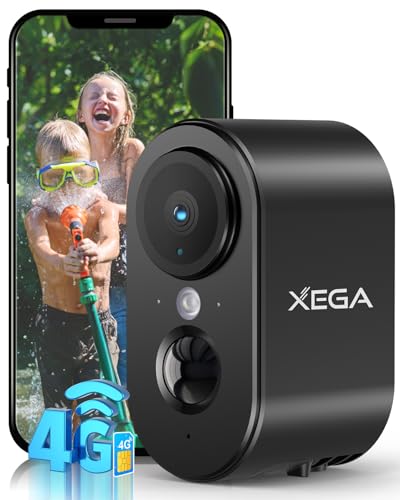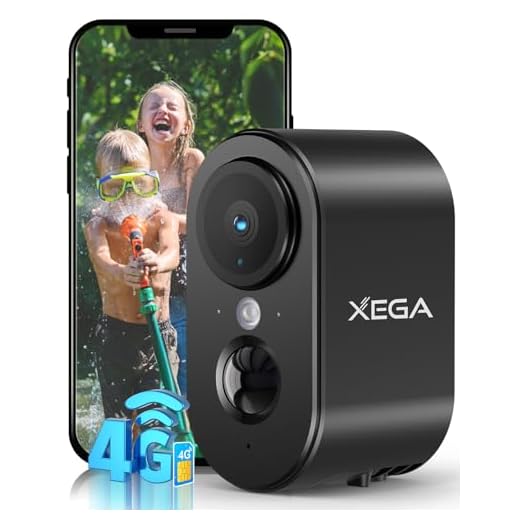




Wireless security cameras have become increasingly popular for home and business surveillance. They offer flexibility and convenience, allowing you to monitor your property remotely. However, many wireless security cameras rely on a wifi connection to transmit footage, which may not be suitable for all situations. So, are there any wireless security cameras that don’t require wifi?
The answer is yes. There are wireless security cameras that operate on different technologies, such as cellular networks or local storage, eliminating the need for a wifi connection. These cameras can be a great option for areas with poor wifi coverage or for users looking to avoid potential wifi hacking risks.
While wifi-enabled security cameras are still the most common choice, non-wifi options provide an alternative for those seeking a different setup. Whether you’re concerned about internet connectivity or simply prefer a different approach to surveillance, non-wifi wireless security cameras offer a viable solution for your security needs.
Are There Any Wireless Security Cameras That Don’t Require Wifi?
While most wireless security cameras rely on a wifi connection for remote monitoring and data storage, there are some options available that don’t require wifi. These cameras typically use a different method of connectivity, such as cellular networks or local storage.
One option is a cellular security camera, which uses a SIM card to connect to a cellular network for data transmission. This type of camera is ideal for remote locations where wifi may not be available.
Another option is a battery-powered security camera with local storage capabilities. These cameras record footage directly to a memory card or a built-in hard drive, eliminating the need for a wifi connection for storage.
Some security cameras also offer the option to connect to a network via Ethernet cable, which can be a more reliable and secure connection compared to wifi.
Overall, if you’re looking for a wireless security camera that doesn’t require wifi, consider options that use cellular connectivity, local storage, or Ethernet connections. These alternatives can provide reliable security monitoring without the need for a wifi network.
Overview of Non-Wifi Security Cameras
Non-wifi security cameras are a popular choice for those looking for reliable surveillance solutions that do not rely on an internet connection. These cameras use alternative methods for data transmission, such as local storage or cellular networks, making them suitable for remote locations or areas with poor wifi coverage.
One common type of non-wifi security camera is the PoE (Power over Ethernet) camera, which receives power and transmits data through a single Ethernet cable. PoE cameras are easy to install and provide a stable connection without the need for wifi.
Another option is cellular security cameras, which use a SIM card to connect to a cellular network for data transmission. These cameras are ideal for areas without wifi access but with cellular coverage, providing reliable monitoring in remote locations.
Non-wifi security cameras offer a range of features, including high-definition video quality, night vision, motion detection, and remote viewing capabilities. With their versatile connectivity options, these cameras are a convenient choice for various surveillance needs.
Benefits of Wifi-Free Security Cameras
1. Enhanced Security: Wifi-free security cameras provide an additional layer of security by eliminating the risk of hacking or unauthorized access through the internet.
2. Easy Installation: These cameras are easy to set up without the need for a complicated wifi network connection, making them ideal for users who are not tech-savvy.
3. Seamless Monitoring: With a direct connection, wifi-free cameras offer seamless monitoring without interruptions due to internet connectivity issues.
4. Cost-Effective: Users can save on monthly wifi fees and installation costs associated with traditional wifi security cameras.
5. Remote Viewing: Some wifi-free security cameras offer remote viewing capabilities through a dedicated app, allowing users to access live footage without relying on a wifi network.
Types of Non-Wifi Security Cameras
When it comes to non-wifi security cameras, there are several options available that do not require a wifi connection for operation. Here are some common types:
Battery-Powered Cameras:
These cameras are powered by batteries, making them completely wireless and independent of any wifi network. They are easy to install and suitable for areas where power outlets are not available.
4G LTE Cameras:
These cameras use a 4G LTE cellular connection to transmit video footage, eliminating the need for wifi. They are ideal for remote locations or areas with poor wifi connectivity.
- Solar-Powered Cameras:
- Wired Cameras:
These cameras are equipped with solar panels to charge the battery, providing continuous power without the need for a wifi connection. They are environmentally friendly and cost-effective.
Traditional wired security cameras can also be used without wifi by connecting them directly to a recording device or monitor using cables. They offer a reliable connection and are suitable for permanent installations.
Features to Look for in Wifi-Less Cameras
If you are in the market for a wireless security camera that doesn’t require wifi, there are several key features to consider to ensure you get the best option for your needs:
- Local Storage: Look for cameras with built-in storage options such as SD card slots or USB ports. This allows the camera to store footage locally without the need for an internet connection.
- Battery-Powered: Opt for cameras that are battery-powered so you can place them anywhere without the need for a power outlet. Make sure to check the battery life and consider rechargeable options for convenience.
- Motion Detection: Choose cameras with motion detection capabilities to trigger recording when movement is detected. This feature can help conserve storage space and ensure you capture important events.
- Night Vision: Look for cameras equipped with night vision technology to capture clear footage in low-light or nighttime conditions. This is essential for round-the-clock security monitoring.
- Weatherproof Design: If you plan to use the camera outdoors, make sure it has a weatherproof design to withstand various weather conditions. Look for cameras with an IP rating for water and dust resistance.
- Easy Installation: Consider cameras that are easy to install and set up without the need for complicated wiring or configuration. Look for plug-and-play options for quick deployment.
Installation and Setup Process
Installing and setting up a wireless security camera that doesn’t require Wi-Fi is a straightforward process. Here are the general steps:
1. Mount the Camera
Choose a suitable location to mount the camera, ensuring it has a clear view of the area you want to monitor. Use the mounting hardware provided with the camera to securely attach it to the desired surface.
2. Power the Camera
Connect the camera to a power source using the included power adapter or batteries, depending on the camera model. Make sure the camera is receiving power before proceeding.
| Camera Model | Power Source |
| Model A | Power Adapter |
| Model B | Batteries |
Comparison with Wifi-Enabled Cameras
When comparing wireless security cameras that do not require wifi with wifi-enabled cameras, there are several key differences to consider.
| Feature | Wireless Security Cameras without Wifi | Wifi-Enabled Cameras |
|---|---|---|
| Connection | Require a separate receiver or base station for video transmission | Connect directly to the internet via wifi |
| Installation | May be easier to set up without the need for wifi configuration | Require wifi setup and network connection |
| Range | Limited by the range of the receiver or base station | Dependent on the strength of the wifi signal |
| Security | Less susceptible to hacking as they do not rely on wifi | Potential security vulnerabilities due to wifi connection |
Ultimately, the choice between wireless security cameras without wifi and wifi-enabled cameras depends on your specific needs and security concerns.
Compatibility with Smart Home Systems
When looking for a wireless security camera that doesn’t require Wi-Fi, it’s important to consider its compatibility with smart home systems. Some security cameras are designed to work seamlessly with popular smart home platforms such as Amazon Alexa, Google Assistant, or Apple HomeKit.
By choosing a camera that integrates with your existing smart home setup, you can easily control and monitor your camera using voice commands or through a centralized smart home app. This can provide added convenience and peace of mind, allowing you to manage your security system alongside other smart devices in your home.
Before purchasing a wireless security camera, check if it is compatible with your preferred smart home system to ensure a smooth and integrated user experience.
Pricing and Budget Considerations
When considering wireless security cameras that don’t require Wi-Fi, pricing and budget are important factors to take into account. While these cameras offer flexibility and convenience, they can vary in price depending on features and quality.
Factors to Consider:
Here are some key factors to consider when evaluating pricing and budget for non-Wi-Fi security cameras:
| Camera Quality | Higher quality cameras with advanced features may come at a higher price point. |
| Number of Cameras | Determine how many cameras you need for your security setup, as this will impact the overall cost. |
| Storage Options | Consider whether the camera offers local storage or cloud storage options, which can affect pricing. |
| Power Source | Some cameras may require batteries or a power source, which can add to the cost over time. |
It’s important to set a budget and prioritize features that are essential for your security needs. Compare prices from different brands and models to find the best option that fits within your budget while meeting your requirements.






